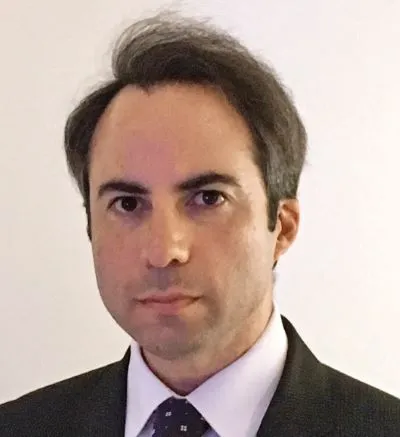Rodrigo Delaveau, LLM ’07, JSD ’13: Chilean Judge Transformed by Study of Law and Economics

Rodrigo Delaveau, LLM ’07, JSD ’13, has been appointed as a deputy justice of the Constitutional Court of Chile, that country’s highest judicial body. The youngest person ever to hold that position (which entails a public contest, a nomination by the Chilean president, and confirmation by two-thirds of the country’s Senate), he earned it through his distinctive combination of academic accomplishment, practical knowledge, and compelling legal thinking.
“I can thank the Law School for making possible this wonderful opportunity, in so many ways,” he said. His JSD dissertation, which examined the conditions that affect judicial review in different societies, was a valuable asset for his nomination and confirmation, he said, as were many of his other studies and his participation in offerings of the Coase-Sandor Institute for Law and Economics. He also remarked on the important transformation in his way of thinking that began when he first started his LLM studies in 2006: “Practically from my first day, I was learning how to really think about issues with a more open, wider view, a more holistic view—and I was learning to do that from many of the most brilliant thinkers in the world, not just legal scholars but thought leaders in so many disciplines.”
Although he had earned a law degree and an LLM degree in Chile before coming to Chicago, he had not been exposed to the Socratic method. “At first, being in class at UChicago was terrifying for me,” he recalled. “Then I recognized that this is the very way we have to think about the law: ask the question, ask the next question, and keep asking questions until you get to the heart of things.” As a professor at Chile’s leading law school (a role he is permitted to retain while he is a deputy justice), he has also introduced the Socratic method there.
His scholarly activities in Chile also provided a strong case for his appointment. He has taught at his current university since 2004 and has presented courses at several other Chilean law schools. At a leading Chilean center for judicial scholarship, he began as a researcher in 2003 and subsequently served as the director in a variety of program areas addressing legislative and constitutional matters. From 2016 to 2018, he led an interdisciplinary team that studied, reported on, and made recommendations related to the most effective functioning of the Chilean judicial system. He also was the lead editor from 2008 to 2012 of an annual compendium of commentaries on constitutional issues.
He comes from a long line of lawyers, which includes his late grandfather, his father, and his brother. “Luckily, we all practice in different fields of law, so our arguments when we get together are about politics, music, and sports, not legal matters,” he observed.
As much as he loves his native country, Chicago is deeply embedded in his heart. “My passion, commitment, and gratitude toward UChicago are beyond any rational parameter,” he said. “I think I will never live long enough to give back all that I have received.” The Greenberg Seminars he attended were important to him not just for what he learned but for what the experience represented: “Here you are, sitting in the home of someone with a great mind, surrounded by brilliant classmates, discussing the biggest possible matters. That is the Law School to me in a nutshell—the combination of the most lofty intellectual pursuits with an intimate camaraderie that isn’t matched anywhere else. My heart leapt every time I walked into one of those Greenberg homes, and it still does flips even as I think about it now.”
Asked what might be next for him after his Court term, he described what he called his “white whale” aspiration—to be invited to the UChicago Law School as a visiting professor. “If that would someday happen—and intellectually owing so much to Chicago—I will feel that my debt is finally paid. My life as a legal scholar would be complete at last,” he said.


